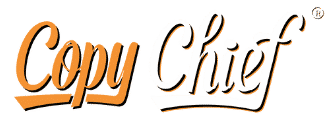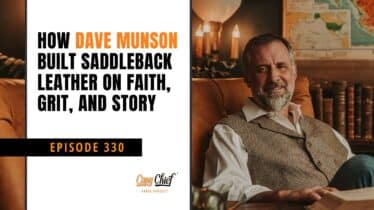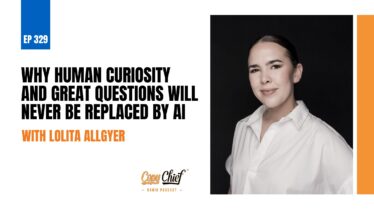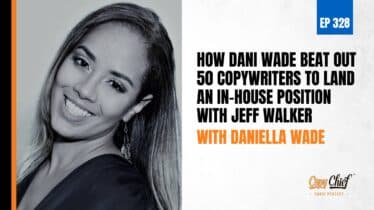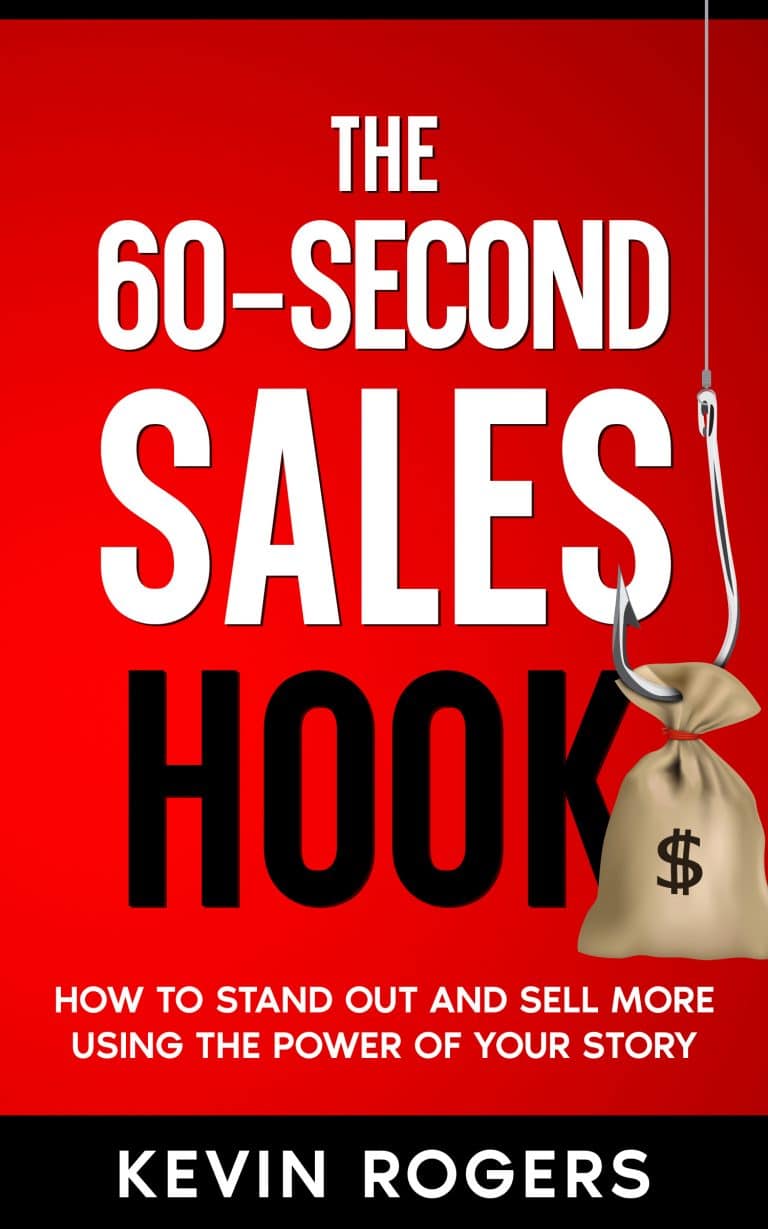In This Episode
In this thought-provoking episode of Copy Chief Radio, Kevin Rogers sits down with Eddie Shleyner, creator of “Very Good Copy,” to discuss the artistry, psychology, and daily practice of being a copywriter. Eddie shares the journey of writing his first book, the life lessons passed down from his grandmother, and how the craft of copywriting extends far beyond selling products—it’s a way of seeing and engaging with the world.
Kevin and Eddie delve deep into the emotional and intellectual toll of writing for a living, how to live a “writer’s life,” and why copywriting is about empathy, clarity, and being invisible in the work. Eddie reveals his process for choosing clients, the unexpected challenges of publishing a book, and the discipline required to balance work, family, and creativity.
Whether you’re a seasoned copywriter or just starting out, this episode will inspire you to think differently about your role as a writer and how you approach both your craft and your life.
Key Takeaways:
- The Craft of Copywriting:
- “Clean, not clever.” Conversion copy should never call attention to itself. The best copy is invisible, focusing on the prospect, their pain, and the solution.
- Drawing inspiration from Eugene Schwartz’s famous metaphor about copy as a “window”—if readers notice the window (the words), they won’t see the product behind it.
- The power of simplicity: avoid unnecessary adjectives and adverbs. Eddie shares how every time he cuts them, the writing improves.
- Eddie Shleyner’s Book Journey:
- Eddie reflects on the process of writing Very Good Copy, a collection of micro-lessons for copywriters. What started as a 3-4 month project turned into a 9-month labor of love.
- The perfectionist struggle: Eddie admits to endlessly tweaking and revising chapters that were “good enough” but not perfect. Kevin calls this the “curse of caring too much.”
- Hiring voice actor Scott Dickers (co-founder of The Onion) to narrate the audiobook, and the unique skills required to read a book aloud.
- The Influence of Family and Upbringing:
- Eddie’s childhood in Ukraine, his move to the U.S., and his close relationship with his grandmother, Sophia, who instilled empathy and a deep understanding of human nature.
- How being raised by his grandmother influenced Eddie’s approach to storytelling and emotional intelligence in copywriting.
- How to Live Like a Copywriter:
- Drawing lessons from John Carlton and Paris Lampropoulos, Kevin and Eddie discuss how copywriters must see the world differently.
- The concept of “noticing” as an essential part of copywriting. Inspired by Harvard professor Jennifer Roberts’ exercise of having students stare at a piece of art for hours, Eddie argues that slowing down to truly see things makes us better writers.
- Copywriters don’t just write—they notice patterns, emotions, and details in life that other people overlook.
- Work-Life Balance and Family Time:
- Eddie shares his strategy for balancing work and family life. Structured workdays, scheduled time with family, and knowing when to “shut it down” are crucial for creative longevity.
- He describes the sacrifices required to maintain creativity, especially as a father of two young children. Eddie embraces the idea of involving his kids in creative activities rather than trying to keep the two worlds separate.
- Choosing Clients and Projects:
- Eddie prioritizes projects with clear conversion objectives—landing pages, email sequences, and other direct-response materials—because he can measure success with clarity.
- He’s less interested in “content” writing or work that doesn’t have a conversion goal.
- After creating a popular course on landing pages, Eddie found himself in demand as a consultant for landing page reviews, a strategic move that helped position him as a go-to expert in the space.
- The Nature of Creativity and Artistry:
- Referencing Chef’s Table, Kevin and Eddie discuss the trade-offs artists make for their craft. They examine how chef Francis Mallmann’s lifestyle—spending only 10 days a month with his family—might seem extreme, but it allows him to live fully as an artist.
- This segues into a reflection on the lives of famous artists like J.D. Salinger and their need for solitude to achieve greatness in their craft.
- Eddie talks about his own “creative solitude” and how deadlines forced him to finish his book. He shares the challenges of “Parkinson’s Law”—how work expands to fill the time allowed—and how he ultimately let go and published the book, knowing it would never be 100% perfect.
- Storytelling and Reflection:
- Both Kevin and Eddie reminisce about childhood moments of storytelling—when friends would recap entire movies or TV shows to each other, a lost art in the age of streaming and social media.
- The power of storytelling as a writer’s core skill—how recounting events forces you to be descriptive, clear, and engaging.
- Thoughts on the Future of Copywriting:
- Kevin reflects on how people have questioned the “death of copywriting” with the rise of AI. But he believes people like Eddie are living proof that great writing still matters.
- Eddie talks about his early fears of being “replaced” by AI copy generators but notes that great copywriters have always stood out from the crowd.
Memorable Quotes:
- “Copywriters must be invisible in the copy. If you see the words, you’ve already failed.” —Kevin Rogers
- “The best part about being a copywriter is that you have to see the world through someone else’s eyes—and once you do that for your work, you can’t stop doing it in your personal life.” —Eddie Shleyner
- “Your job as a copywriter is to be thoughtful, to take a step back, and to notice. If you give yourself space and time to notice, you will see profound moments everywhere.” —Eddie Shleyner
- “Artists who make no compromises get to live a life of their choosing. It may look strange from the outside, but they’ve embraced it, and that’s the kind of courage we all need.” —Kevin Rogers
- “If you can remove words and still say the same thing, the writing is better every time.” —Eddie Shleyner
Action Steps for Listeners:
- Get the Book: Check out Eddie Shleyner’s book, Very Good Copy, a collection of micro-lessons on creativity, writing, and the craft of copywriting.
- Practice “Noticing”: Try Jennifer Roberts’ exercise of staring at a single piece of art for three hours. Then, try applying this practice to your own copywriting and creativity.
- Write with Simplicity: As Eddie suggests, challenge yourself to eliminate unnecessary words—especially adverbs and adjectives. See if the writing improves.
- Sign Up for Eddie’s Newsletter: Head to VeryGoodCopy.com to receive regular micro-lessons on copywriting, creativity, and marketing.
- Revisit Your Storytelling Roots: Spend time recounting a movie, book, or event to a friend without using any visual aids. See how well you can bring it to life with words alone.
Resources Mentioned:
- Download the Episode Here
- Very Good Copy by Eddie Shleyner (available on his website)
- The Middle Passage by James Hollis (book recommended by Kevin)
- Exit Through the Gift Shop (Banksy’s documentary about art and commerce)
- Chef’s Table (Netflix series featuring Francis Mallmann)
- Leave a review here – STITCHER | SPOTIFY | ITUNES | YOUTUBE
Connect with Kevin Rogers:
- Website: CopyChief.com
- Podcast: Copy Chief Radio — Available on all major podcast platforms
- Copy Chief Instagram
- Copy Chief Facebook
- Copy Chief Youtube Channel
Connect with Eddie Shleyner:
- Website: VeryGoodCopy.com
- Newsletter: Subscribe for free copywriting lessons
- LinkedIn: Connect with Eddie Shleyner on LinkedIn
Plus… whenever you’re ready:
- Become a member of Copy Chief here
- Join our program for new freelancers – Accelerator
- Place yourself on the Freelancer’s Journey Timeline
- Learn How To Raise Prices
If you enjoyed this episode, please leave a review on your favorite podcast platform. Reviews help us grow and continue to bring you incredible conversations with expert copywriters and creatives.
Produced by Copy Chief Media
